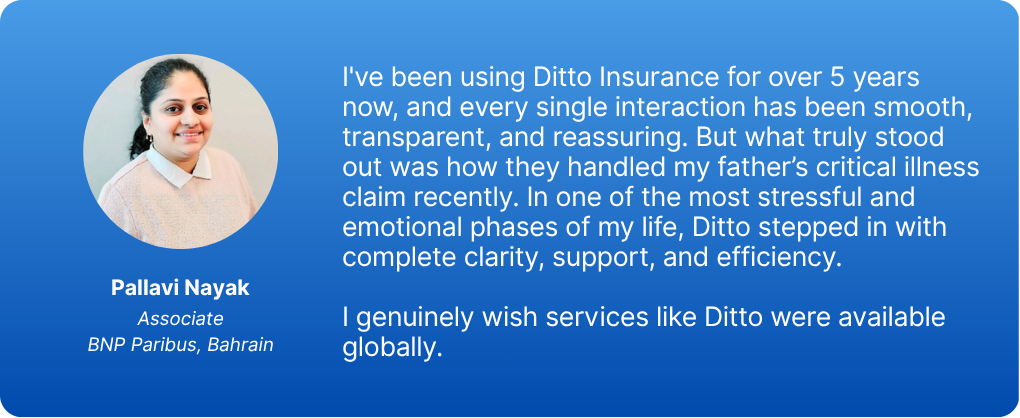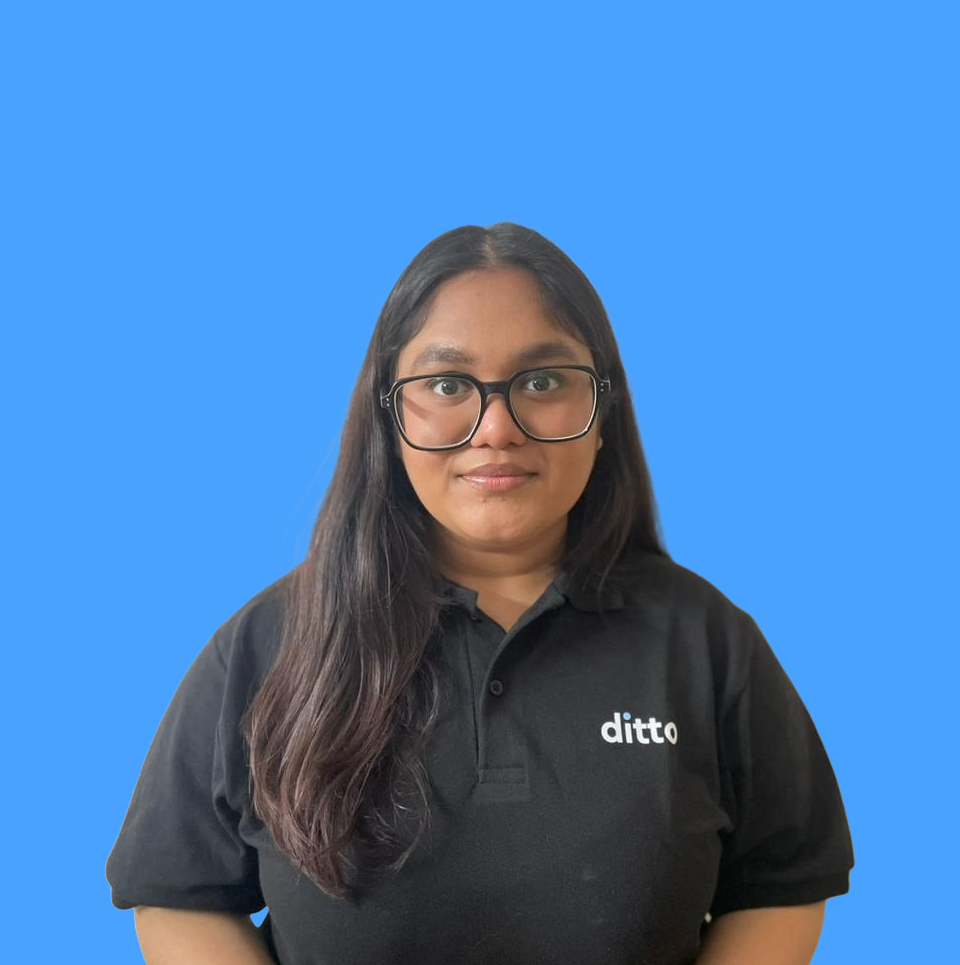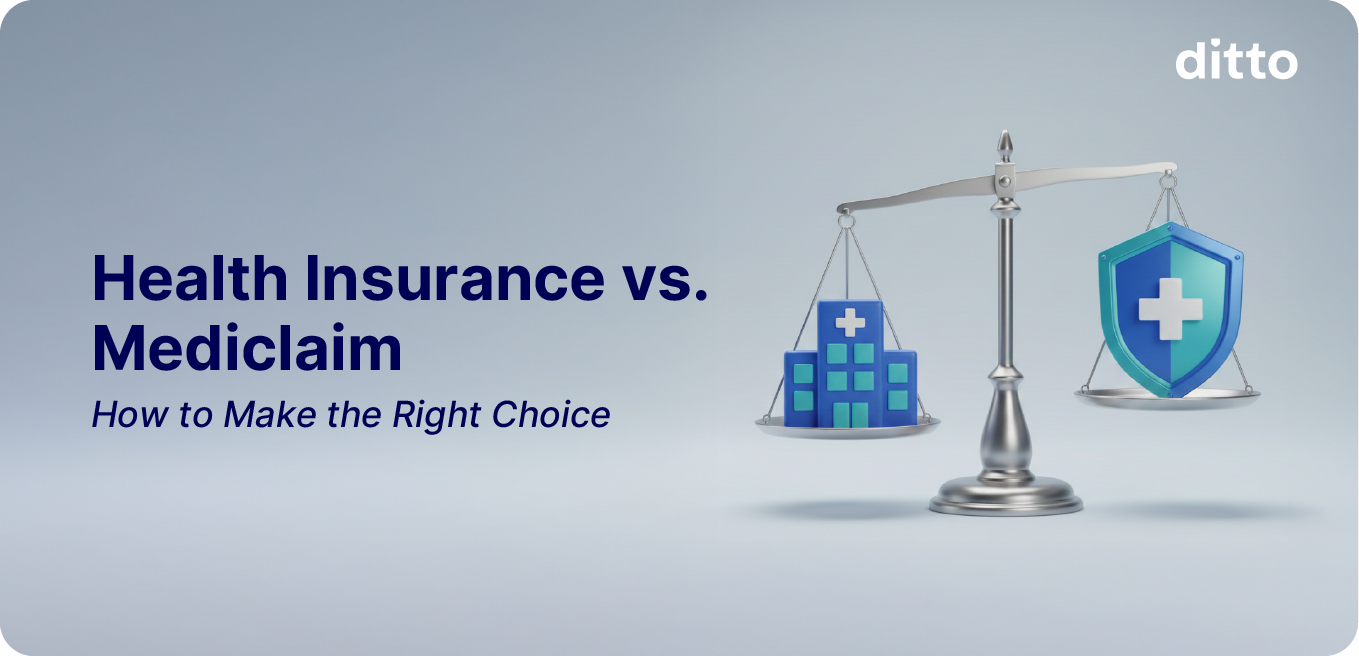Quick Overview
Imagine you are buying your first health plan and you see two labels: “Mediclaim” and “Health Insurance.” It feels like you have to pick the “right” one. But in reality, there is no difference.
“Health insurance vs Mediclaim policy” shows up in searches because many Government backed insurers still use “Mediclaim” in the actual policy name. That branding stuck in everyday language.
In this article, we will break down why people think a mediclaim vs health insurance difference exists, where you actually need to pay attention to the policy type and wording, and how to navigate the confusion.
Health Insurance Vs Mediclaim: What are the Differences?
There is no difference between both categories. Here is the history you should know:
India’s general insurance industry was nationalized, and 107 insurers were grouped into four government-backed companies (Public Sector Undertaking Insurers) starting January 1, 1973. Health cover was not a separate business line in those times. When these PSU insurers introduced India’s first widely-known retail health cover in 1986, they branded it as a mediclaim policy. Then, many started using “mediclaim” as the everyday word for health insurance.
Even today, PSU insurers still use the word in product names, like National Mediclaim Policy and Oriental’s Mediclaim Insurance Policy, which makes it feel like “mediclaim” is a different product.
From a regulator lens, there is no separate class called “mediclaim.” IRDAI’s framework talks about health insurance business, not a separate “mediclaim” category.
When Does the Wording Actually Matter?
In today’s market, health insurance is health insurance, and “mediclaim” is just a legacy label. But the wording matters when the product is not a normal hospitalization cover.
A standard health insurance plan is indemnity-based, meaning it pays your actual hospital bill (cashless or reimbursement) up to the sum insured. Some products, however, are benefit-based, meaning they pay a fixed amount based on an event, not on your final bill.
Examples of where wording changes the meaning:
- LIC’s Jeevan Arogya (withdrawn) offered a “lump sum benefit irrespective of actual medical costs” and worked using daily hospital cash and fixed surgical benefits.
- Star Health also offers a hospital cash policy offering different levels of payouts like sickness hospital cash, accident hospital cash etc.
If a brochure says hospital cash, lump sum, defined benefit, or on diagnosis, treat it as an add-on style product, not a replacement for a regular hospitalization policy.
Why Choose Ditto for Health Insurance?
At Ditto, we’ve assisted over 8,00,000 customers with choosing the right insurance policy. Why customers like Pallavi below love us:

- No-Spam & No Salesmen
- Rated 4.9/5 on Google Reviews by 15,000+ happy customers
- Backed by Zerodha
- Dedicated Claim Support Team
- 100% Free Consultation
Confused about the right insurance? Speak to Ditto’s certified advisors for free, unbiased guidance. Book your call or chat on WhatsApp with us now!
Ditto’s Take on Health Insurance Vs Mediclaim Policy
It does not matter whether a policy is called mediclaim or health insurance. What matters is what the policy will actually pay for, and what it will restrict.
So before you buy, open the policy wording and scan for the deal-breakers:
- Co-payment: Will you have to pay a fixed percentage of every claim, especially for parents or certain hospitals? We do not recommend opting for this because out-of-pocket expenses become very high.
- Room rent restrictions: If the plan caps room eligibility, your out-of-pocket bill can rise fast because total costs can get linked to the room category.
- Disease-wise sub-limits: Some plans cap payouts for specific treatments or conditions, even if your sum insured is high.
- Waiting periods: Especially for pre-existing diseases and common procedures, because this decides when the cover becomes truly useful.
- Restoration conditions: Does it refill only after a full claim, only once, only for unrelated illnesses, or in the same year?
- Permanent exclusions: Each policy has a list of permanent exclusions, things which are never covered, for example - any claim due to some criminal activity.
- Non payable items: Many policies do not pay for consumables like gloves, nebulization kits, PPE, and admin charges, which often leads to surprise out of pocket costs at discharge.
Check our Best Health Insurance Plans guide where we review 200+ policies and rate the strongest ones on features, insurer reliability, and pricing, while discussing the fine print.
Frequently Asked Questions
Last updated on:










